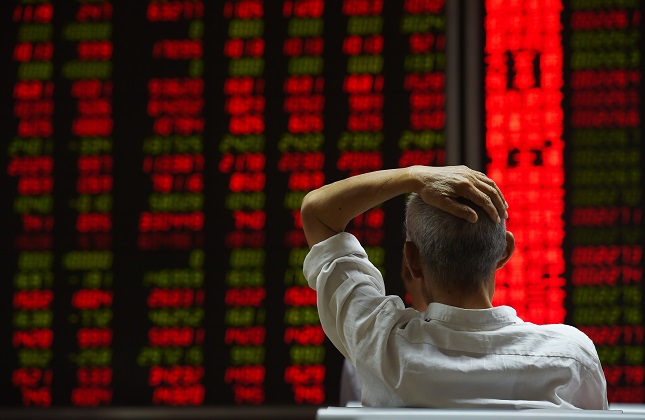When the Dow nor the Vix represent vox populi
So the Dow Jones Industrial Average dropped a whopping 1,175 points and the Vix (aka Cboe’s Fear Gauge) is at its highest point since August 2015. However, something seems different about this particular sequence of events.
I am old enough to remember the massive drops the DJIA suffered back in the fall of 2008. Those drops seemed like they were felt by everyone. The average man and woman on the streets of the US was talking about the drama on Wall Street. It doesn’t feel like that now. Sure, the cable news channels are all over it, but Americans aren’t gripped with fear this time around. So while traders are fearful, I think there are two possible reasons for the lack of fear on Main Street.
- It takes a lot more to shock Americans these days. One evolution of life during the Trump administration is how big news stories keep coming and coming at a relentless pace. A plunge in the markets simply doesn’t generate the shock and awe it once did.
- Main Street isn’t losing. This is a notion that was touched upon by more than a few of the big wigs at Davos. Large swaths of the population have their money parked in cash. These people might have missed out on the financial gains of a rising market, but that also means they don’t have much of a financial reason to care when the market tanks.
Speaking of Davos, I am also old enough to remember when all the bankers there were talking about how great everything was with the global economy … 10 days ago!
Why wait for Brexit?
It looks like Eurex is already enjoying the spoils of Brexit. The clearinghouse, which is owned by Deutsche Borse, has paired the uncertainty surrounding Brexit with a nifty incentive plan to boost its clearing volume. And not just a little bit:
“The notional average daily volume for January surged to €35 billion for Eurex, seven times its total for the whole of 2017.”
I guess sometimes the early vogel really does get the wurm.
Broadcom stays bold
The move by Broadcom to up its offer for Qualcomm and get tough with its ‘best and final offer’ talk matches the brash reputation of Broadcom CEO Hock Tan. However, the timing is a wee bit odd since rumor has it Apple might be thinking of ending its relationship with Qualcomm and taking its chip business to Intel.
On Wells Fargo
Since that sneaky little Janet Yellen decided to wait until late Friday to drop the hammer on Wells Fargo, I didn’t get a chance to cover it last week. But seeing as how the misadventures of Wells Fargo have been a popular topic in this space, it seems a little bit of reaction to the reaction might be in order.
First, regardless of what some people think, the penalties put in place by the Fed do not represent the ushering in of some new harsh era of oversight. If the Fed meant business, Yellen could have done what she did a lot sooner. That would have given her a chance to oversee the enforcement. Instead, she waited until the last-minute; which pretty much means no one at the Fed “owns” the penalties and is vested in seeing them carried out.
It is also worth pointing out the vast difference between what a financial regulator says and what it does. Aside from the removal of board members, the predisposition toward light/no-touch regulation that the current administration embraces so dearly means it would be a surprise to see these penalties enforced with much vigor.
As far as the long-term impact on Wells Fargo, I tend to agree with analyst Dick Bove and see the penalties as a ‘nothing-burger.’ I would have called the penalties a ‘tempest in a teapot,’ but, well… you know.
WYWW Appetizers
- How Chinese bank regulations are stinging Silicon Valley.
- Some surprising facts about the Red State vs Blue State tax battles.
- Conte-Watch got a lot hotter as Watford buried Chelsea 4-1.
